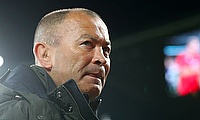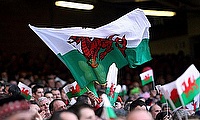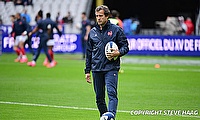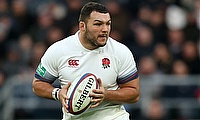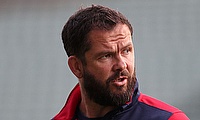Big weekend ahead for Japan and Fiji
The continuing globalisation of professional rugby has seen an ever-increasing focus emerge on the exploits of the Tier Two nations.
No longer consigned to simply make up the numbers at international tournaments, Tier Two nations now comprise as significant a role in the annual autumn international series as that of the historic northern and southern hemisphere powerhouses. With this in mind, Talking Rugby Union’s focus this week is on Fiji and Japan ahead of their test fixtures with England and Wales respectively.
No two countries better epitomise the concurrent virtues and faults of modern international rugby than Fiji and Japan. On one side you have Japan, the fastest growing program in world rugby and the future host nation of the first ever Rugby World Cup held on Asian soil. Built off a foundation that has flourished with the promulgation of university-level rugby and a domestic league that has the financial backing to routinely lure some of Super Rugby’s premier talents for a three-month soiree in the off-season (Eben Eztebeth, Bernard Foley and Jerome Kaino to name but a few) Japan added their own Super Rugby Franchise, the Sunwolves, this past season to compliment a scintillating year that saw them record arguably the biggest upset in international history, beating South Africa 32-34 in the 2015 World Cup.
And on the other, you have Fiji – an exciting and proud rugby nation but for whom advancement into the upper echelons of international rugby has been stymied in recent years by exploitative eligibility rules that has seen the Pacific Island lose access to some of the brightest talents in modern rugby today. Whilst England (Nathan Hughes, Semesa Rokoduguni), France (Noa Nakaitaci, Virimi Vakatawa), Australia (Tevita Kuridrani) and New Zealand (Waisake Naholo...to name a few) have all benefitted, Fiji have suffered – one wonders how their 40-7 loss to the Barbarians in Belfast on Friday may have gone differently had they had access to the above players. The difference is, unfortunately, monetary-based and whilst the Japanese government and national union have shown a determined interest in investing in the sport from grassroots level up, Fijian rugby has been plagued by a lack of infrastructure, and indeed, frigid relations between World Rugby and the Fijian Government over resource allocation to help grow the game.
It is not all doom and gloom for the Flying Fijians, however. The vast majority of Fiji’s national team can boast extensive experience in either the English Premiership, French Top 14 or Super Rugby with the country also set to enter the Fiji Warriors into Australia’s National Rugby Championship from the 2017 season onwards in order to promote domestic rugby in the Pacific Islands. Whether these measures can replicate the meteoric rise enjoyed by Japan in the last few years remains to be seen but it is a step in the right direction.
The two nations’ respective tests this weekend will serve then as extremely different markers of their playing fortunes. For Japan, a visit to Wales and the Principality Stadium will be an enticing test of how fare the national team has developed since that result in Brighton last September. For Fiji meanwhile, despite an exciting squad that includes four of their 2016 Olympic Sevens team who swept to victory in Rio de Janeiro this summer alongside the formidable wing partnership of Nemani Nadolo and Waisea Nayacalevu, it may unfortunately be a case of trying to keep the scoreline respectable against an England side that dispatched the Springboks in empathic fashion last weekend, 37-21.
The most interesting fixture for both sides’ autumnal tours however may come the following weekend when Fiji and Japan meet at the Stade de la Rabine in Vannes. With both sides pursuing extremely different routes in order to make the jump to Tier One status, it will be fascinating to see which side triumphs and whether a secondary tier between those with the financial means to seriously contemplate life as a top-tier rugby nation and those without is genuinely beginning to emerge amongst Tier Two nations.

